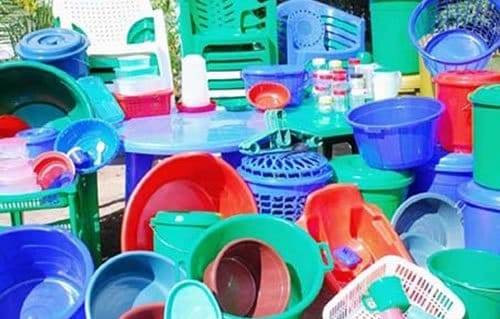 Top plastic bottles plastic companies in Ghana Ghana.
Top plastic bottles plastic companies in Ghana Ghana.
There are many manufacturing plastic companies in Ghana that are core container manufacturers and wholesale distributors of plastics, chairs, tables and other plastic products. This post shows some of the top plastic companies from Accra, Tema, Kumasi with distributors and other industrial areas in Ghana.
Plastic products are manufactured from high-density plastics. Common uses for plastic bottles or plastic bottle containers are for storing liquids especially natural mineral water, soft drinks, motor oils, cooking oils, shampoo, ink, medicine, and milk.
If you are in the position of searching for some of the top and best plastic manufacturers and distributors in Ghana, then the following list should help you.
Duraplast Ghana Ltd:
 Duraplast Ghana Limited has been supplying high-quality unplasticized Polyvinyl Chloride (uPVC) and HDPE pipes and fittings to Ghana’s water and electrical engineering markets for over 50 years.
Duraplast Ghana Limited has been supplying high-quality unplasticized Polyvinyl Chloride (uPVC) and HDPE pipes and fittings to Ghana’s water and electrical engineering markets for over 50 years.
They are equipped with cutting-edge industrial machinery that is top-of-the-line.
Duraplast Ghana uses cutting-edge technology to produce pipes that meet international requirements. Due to their high level of precision and demanding laboratory, the Ghana Requirements Board has approved them to meet industrial standards.Pens and Plastics Ghana Ltd (BIC Pen Manufacturers)
 Pens and Plastics Ghana Ltd are manufacturers and wholesale company based in Accra, Ghana. They manufacture all kinds of plastics and other rubber materials such as BIC Pen, school bags, shaving sticks, T-shirts and etc. Pens and Plastics are part of the group called CFAO. They are also automobiles and merchant wholesalers in vehicles.
Pens and Plastics Ghana Ltd are manufacturers and wholesale company based in Accra, Ghana. They manufacture all kinds of plastics and other rubber materials such as BIC Pen, school bags, shaving sticks, T-shirts and etc. Pens and Plastics are part of the group called CFAO. They are also automobiles and merchant wholesalers in vehicles.Strong Plast Limited – Manufacturers of Gye Nyame Plastic Chairs

Strong Plast Limited is the sole manufacturers of Gye Nyame plastic chairs. They produce plastic chairs, tables, and crates. Their plastic tables range from small sizes, medium and large sizes. If you are looking for a strong, durable, and quality plastic chair for your business, then you should consider their product. They are also into wholesale distribution. They are located at the KIA Accra.
Danica Plastics Ltd

Danica Plastics is also another plastic manufacturing company in Ghana. They are located at Weija – Around Kasoa. Danica Plastics are distributed to wholesalers and individuals. They have been in the system for a long time and have risen to fame through credibility and reviews from customers.
J & J Plastics Ltd
 J & J Plastics Ltd originated from Plastic Manufacturing Company. They produce ranges of plastic products. They also produce mineral water under the brand name Cool. They are located in Kotoku Junction, Medie around the Nsawam Road, Accra.
J & J Plastics Ltd originated from Plastic Manufacturing Company. They produce ranges of plastic products. They also produce mineral water under the brand name Cool. They are located in Kotoku Junction, Medie around the Nsawam Road, Accra.Charkieh Plastics and Packaging Gh Limited
Charkieh Plastics and Packaging Gh Limited are pioneer manufacturers of plastic buckets in all sizes. They also produce Mold, Dye and punches.
We believe in the preservation of the environment.Our team is dedicated to the promotion of bio degradable products.We do this by keeping our clients well informed of the new technologies available to produce bio degradable products and by giving them a competitive edge for these products in the market.
Comfort Plastic Ltd:
 Comfort Plast Limited: Since our establishment in 1998, we have been offering our clients fine quality plastic chairs and tables that are designed with the aim of providing the highest level of comfort, superior design, with a variety of colours, at the modest economical prices.
Comfort Plast Limited: Since our establishment in 1998, we have been offering our clients fine quality plastic chairs and tables that are designed with the aim of providing the highest level of comfort, superior design, with a variety of colours, at the modest economical prices.We believe that these are the reasons why we have been successful in achieving high levels of repeated business.
Our Products:
Our plastic products are specially customized to ensure high durable quality, resistance, endurance and to be suitable for indoor and outdoor use.
MORE:
[pt_view id=”aa3d1bf8f9″]
Article: The State of Plastic and Waste Management and Recycling in Ghana
Ghana, which is a west african country and is popularly known for its rich culture in cocoa, manganese, gold and also rubber. Rubber has been used for the manufacturing of plastic materials. For the past decade and beyond, Ghana has been facing challenges in the management of solid waste, which also includes plastic waste.
Plastic pollution has really become a major environmental concern in Ghana and other west african countries. The use of plastic products like plastic packaging has grown significantly and this has resulted in ocean pollution and plastic pollution.
Coliba Ghana, which is one of the top plastic companies in Ghana is a manufacturing company that produces plastic products like waste bins, bottles, septic tanks and poly tanks. The company is located around the North Industrial Area of Accra, which is the capital. The reputation for high-quality plastic products is claimed by Coliba Ghana, PolyTank Ghana, Sintex Container and even the Coca Cola company at the spintex of Accra.
These plastic companies normally export to other countries in West Africa including the Ivory Coast and South Africa.
Sintex Container is also a leading provider of recycling services and plastic pipe systems. Located in the North Industrial Area of Accra Kaneshie, Sintex Ghana is known for their commitment to sustainability by focusing on recycling and the use of recycled plastic materials.
Apart from Coliba Ghana, and Sintex Ghana, the Coca Cola Company of Ghana is also a major player in the plastic industry. The Coca Coloa Ghana company has been in Ghana for over 50 years and is known for its efforts to reduce plastic pollution through social responsibility programs to reduce plastic pollution through initiatives like the PlantBottle which is made from recycled plastic and can be recycled again after use.
Ghana’s plastic industry has a significant impact on the country’s economy with many companies exporting plastic products to other countries in Africa and beyond. However, the increasing amount of plastic waste management in Ghana has led to the challenges in waste management and the disposal. With communities struggling to properly dispose of these waste.
By addressing these problems, some plastic companies and organizations in Ghana have worked and are still working to promote plastic recycling and the use of alternative packaging materials like paper bags. These efforts are very essential and are not only for the environment but also for the economy of Ghana. By adopting these circular economic principles, it will help to create jobs and also to support the growth of the plastic industry in the long term.
North Industrial Area Plastic Companies:
- V5 Plastic Ltd, Plastic fabrication company Shed No. 4, Plot, 55 Abotia St · 030 222 6294
- ComfortPlast: Plastic fabrication company, Kaneshiro north industrial area, 8, Dadeban Rd · 030 222 8945 Opens 8AM Mon -Fri
- Universal Plastic Ltd: Plastic fabrication company 9 Dadeban Rd · 030 222 8105
Plastics and Waste Frequently Asked Questions
What plastic company is the biggest in West Africa?
| Rank | Polymer Producer | Production of in-scope polymers |
| 1 | ExxonMobil | 11.2 |
| 2 | Sinopec | 11.5 |
| 3 | Dow | 9.3 |
| 4 | Indorama Ventures | 5.1 |
What is Plastic Waste Management?
Plastic Waste Management is the initiative that aims to establish an environment-friendly plastic waste disposal solution for the world.
What is Plastic Solid Waste?
Plastic is a significant fraction of municipal solid waste and often consists of packaging waste and discarded tools and goods.
What is Plastic Pollution?
Plastic waste or plastic pollution is the accumulation of plastic products or objects like plastic bottles, and polythene bags, and the Earth’s environment affects wildlife habitats and humans.
What is the meaning of plastic recycling?
Plastic Recycling is the process of recovering waste or scrap plastics and reprocessing them for useful8 AM products.
What is the meaning of waste collection?
Waste collection is gathering and transporting waste to the place of treatment or discharge by municipal services, similar institutions, private corporations, specialized enterprises, or the general government.
Who are waste pickers?
A waste picker is a person hired by a company or a person who salvages reusable or recyclable materials disposed away by people to sell or for personal consumption. The world has millions of waste pickers and predominantly in developing countries.
What is Plastica Cote Divoire – Ivory Coast
PLASTICA is an Ivorian company specialized in the field of plastics processing. It has developed through several subsidiaries within Africa. PLASTIC is an Ivorian plastic company in the field of plastic processing. They have developed through subsidiaries in Africa especially west afriac.
Glossary
- Top Plastic Companies in Ghana: Refers to the leading companies in Ghana that are involved in the production, manufacturing, and distribution of plastic products.
- West Africa: Refers to the region in Africa that encompasses countries on the westernmost part of the continent, including Ghana. It is relevant to the plastic industry as it represents a geographical market and trade area.
- Waste Management: Involves the collection, transportation, processing, recycling, and disposal of waste materials, including plastic waste. It is crucial for mitigating environmental pollution and promoting sustainable practices.
- Solid Waste: Refers to any discarded materials that are not liquid or gaseous. It includes various forms of waste, including plastic waste, and requires proper management to minimize its negative impact.
- Waste: Refers to any material or substance that is no longer wanted or needed. It includes different types of waste, such as plastic waste, and necessitates appropriate handling and disposal methods.
- Plastic Waste: Refers to discarded plastic materials that are no longer in use or have reached the end of their life cycle. Plastic waste management and recycling are crucial for reducing plastic pollution and promoting a circular economy.
- Plastic: Refers to a synthetic material made from polymers that can be molded into various shapes. It is widely used in packaging, manufacturing, and other industries but poses environmental challenges due to its non-biodegradable nature.
- Packaging: Involves the process of enclosing products or goods in containers or materials for protection, storage, distribution, and sale. Plastic packaging is commonly used but requires responsible disposal or recycling to minimize its environmental impact.
- Plastic Pollution: Refers to the contamination of the environment, particularly water bodies and ecosystems, by plastic waste. It poses a significant threat to wildlife, marine life, and human health and calls for effective measures to combat and reduce plastic pollution.
- Plastic Recycling: Involves the process of converting plastic waste into reusable materials through various techniques such as sorting, cleaning, shredding, melting, and reprocessing. Plastic recycling helps conserve resources and reduces the need for virgin plastic production.
- Plastic Bottle: Refers to a container made of plastic used for holding liquids, beverages, or other substances. Plastic bottle recycling is essential to minimize plastic waste and promote sustainable resource management.
- Waste Collection: Involves the gathering and removal of waste materials from households, businesses, or public areas. Proper waste collection, including plastic waste, is crucial for effective waste management and recycling.
- Recycling: The process of converting waste materials, such as plastic waste, into reusable materials to reduce the consumption of new resources, energy usage, and environmental impact.
- North Industrial Area: Refers to an industrial zone or district, typically located in the northern part of a city or region. It may encompass manufacturing facilities, including plastic production and recycling plants.
- Ivory Coast: Refers to a country in West Africa. Although not directly related to plastics, it is included as it shares regional and economic ties with Ghana and may have an impact on the plastic industry.
- Waste Pickers: Refers to individuals or workers who collect recyclable materials, including plastic waste, from waste streams to earn a livelihood. They play a significant role in the informal recycling sector and contribute to the collection and recovery of plastic waste.
- South Africa: Refers to a country located in the southern part of the African continent. It is relevant to the plastic industry as it represents a regional market and may have similarities or differences in terms of plastic waste management and recycling practices.
- Coliba Ghana: Refers to a waste management and recycling company in Ghana that focuses on collecting and recycling plastic waste. It is an example of a company actively involved in addressing plastic pollution and promoting sustainable waste management practices.
- Waste Disposal: Involves the final disposal or treatment of waste materials, including plastic waste, in a safe and environmentally responsible manner. Proper waste disposal is essential to prevent pollution and protect human health and the environment.
- Sintex Container: Refers to storage containers or tanks produced by Sintex, a leading manufacturer of plastic products. These containers may have applications in various industries, including storage and transportation of liquids or bulk materials.
- Recycling Services: Refers to professional services offered by recycling companies or organizations to collect, process, and recycle various waste materials, including plastic. These services contribute to the efficient and effective management of plastic waste.
- Company: Refers to an entity or organization engaged in commercial activities, including the production, manufacturing, or recycling of plastic products. Companies play a vital role in the plastic industry and contribute to economic growth and environmental sustainability.
- Manufacturing Company: Refers to a company involved in the production and manufacturing of various products, including plastic items. Manufacturing companies utilize plastic as a raw material to create a wide range of products for different industries.
- Coca-Cola: Refers to a multinational beverage company that produces and distributes various soft drinks, including those packaged in plastic bottles. It is relevant to the plastic industry as it represents a significant user of plastic packaging and has sustainability initiatives to address plastic waste.
- Bottles: Refers to containers made of plastic used for packaging beverages, personal care products, and other liquid or powdered substances. Plastic bottles are widely used but require proper recycling and waste management to minimize their environmental impact.
- Waste Bins: Refers to containers or receptacles used for collecting and storing waste materials, including plastic waste. Waste bins play a crucial role in waste segregation and proper disposal, facilitating efficient waste management practices.
- North America: Refers to the northern part of the American continent, including countries like the United States and Canada. While not directly related to Ghana, it is included as it represents a developed region with established plastic waste management practices and recycling infrastructure.
- Plastic Bag: Refers to a type of bag made of thin plastic material, typically used for carrying or packaging goods. Plastic bag usage has raised concerns due to its environmental impact, leading to efforts to reduce single-use plastic bags and promote reusable alternatives.
- Management: Refers to the process of planning, organizing, and controlling activities to achieve organizational goals. Waste management, including plastic waste management, involves the efficient handling, processing, and disposal of waste materials.
- Plastic Products: Refers to a wide range of goods or items made of plastic, including household items, packaging materials, construction materials, and consumer goods. Plastic products have diverse applications but require responsible disposal or recycling to prevent environmental harm.
- <materials used for conveying fluids or gases in various applications such as plumbing, irrigation, and industrial processes. Plastic pipe systems offer advantages such as corrosion resistance, durability, and ease of installation, contributing to efficient and sustainable infrastructure.
- Sustainability: Refers to practices that meet present needs without compromising the ability of future generations to meet their own needs. In the context of plastics, sustainability involves reducing plastic waste, promoting recycling and reuse, adopting eco-friendly materials, and minimizing the environmental impact of plastic production and disposal.
- Waste Plastic: Refers to plastic materials that are discarded or no longer in use. Waste plastic poses environmental challenges due to its non-biodegradable nature and potential for pollution.
- Waste Collector: A person or entity involved in the collection and disposal of waste materials, including waste plastic. Waste collectors play a crucial role in proper waste management and recycling.
- Nelson Boateng: Nelson Boateng is an individual, and the specific context or significance of this name is not provided. Without further information, it is challenging to provide a detailed glossary description.
- Nelplast Ghana: Nelplast Ghana is a plastic manufacturing company based in Ghana. It is involved in the production of various plastic products and contributes to the country’s plastic industry.
- Ghana Plastic Manufacturers Association: The Ghana Plastic Manufacturers Association is an organization that represents and promotes the interests of plastic manufacturers in Ghana. It aims to support the growth and development of the plastic industry in the country.
- Sachet: A small, sealed plastic bag or pouch used for packaging products such as liquids, powders, or snacks. Sachets are commonly used for single-use packaging of consumer goods.
- Plastic Bags: Lightweight, flexible bags made from plastic materials. They are commonly used for packaging and carrying goods. The use of plastic bags has raised concerns due to their environmental impact and contribution to plastic waste pollution.
- Plastic Waste Recycling: The process of converting waste plastic into reusable materials through various recycling techniques. Plastic waste recycling helps reduce the amount of plastic waste sent to landfills or incineration, conserves resources, and mitigates environmental pollution.
- Plastic Manufacturer: A company or entity engaged in the production of plastic products. Plastic manufacturers employ various processes and technologies to create a wide range of plastic goods for different industries and applications.
- Pavement Blocks: Solid blocks made from plastic or other materials used in the construction of pavements, walkways, and driveways. Plastic pavement blocks offer durability, ease of installation, and potential sustainability benefits.
- Building Materials: Refers to materials used in construction and building projects. Building materials can include a wide range of materials such as wood, steel, concrete, and plastic, depending on the specific application and requirements.
- Cent: A unit of currency, typically representing a small fraction of a whole unit. The reference to “cent” in the given context is not clear, and additional information is needed to provide a more specific glossary description.
- Recycling Plant: A facility equipped with machinery and processes designed to recycle various materials, including plastic waste. Recycling plants accept, sort, clean, and process waste materials to produce recycled materials for reuse in manufacturing or other applications.
- Investors: Individuals or entities that provide financial resources or capital to support business ventures or projects. In the context of a recycling plant or plastic industry, investors play a crucial role in funding operations, expansion, and innovation.
- Single-Use Plastic: Refers to plastic products designed for one-time or short-term use before being discarded. Examples include plastic bags, straws, disposable cutlery, and beverage bottles. Single-use plastics have raised concerns due to their contribution to plastic waste pollution.
- Plastic Waste Pollution: The environmental contamination caused by the improper disposal of plastic waste, leading to its accumulation in the environment. Plastic waste pollution adversely affects ecosystems, wildlife, and human health, making effective waste management and recycling crucial for mitigating its impact.
- Supplier: A company or individual that provides products or materials to other businesses. In the context of plastics, a supplier can refer to a company that supplies raw materials, such as plastic resins or additives, to plastic manufacturers or recycling plants.
- Landfills: Sites designated for the disposal of solid waste, including plastic waste, in a controlled manner. Landfills are engineered to minimize environmental impacts and potential health hazards associated with waste disposal.
- Private Sector: The segment of the economy composed of privately owned businesses and organizations. In the context of plastics, the private sector encompasses plastic manufacturers, recycling companies, suppliers, and other businesses involved in the production, distribution, and management of plastic products.
- Buyers: Individuals or entities that purchase goods or materials from suppliers or manufacturers. In the context of plastics, buyers can refer to companies or organizations that purchase recycled plastic materials for use in their manufacturing processes or as raw materials for new plastic products.
- Rights Reserved: A common phrase indicating that the legal rights to a particular work, content, or intellectual property are reserved by the owner. It signifies that the owner retains exclusive rights to use, reproduce, or distribute the content and that others must seek permission before using or reproducing it.
- Sand: Granular material composed of small rock particles, primarily consisting of silica. Sand is a versatile material used in various industries, including construction, manufacturing, and infrastructure development.
- Insulated Products: Refers to products designed with insulating properties to regulate temperature or prevent heat transfer. In the context of plastics, insulated products can include insulated containers, packaging, or building materials that provide thermal resistance or protection.


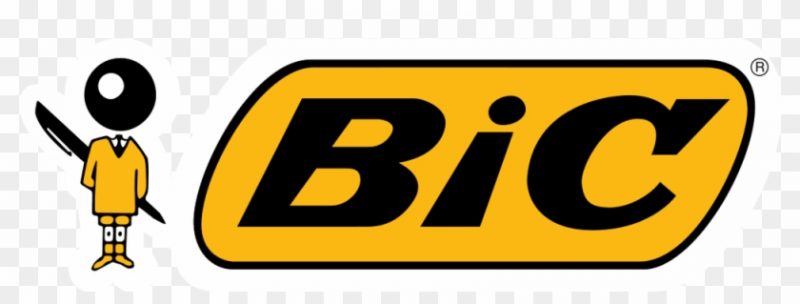 Pens and Plastics Ghana Ltd
Pens and Plastics Ghana Ltd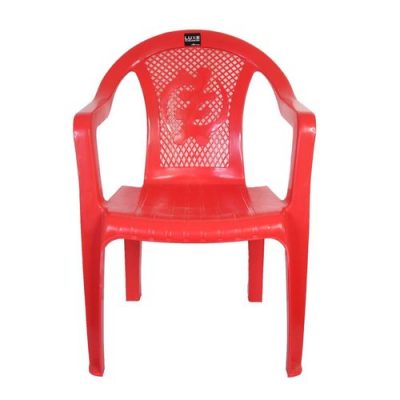
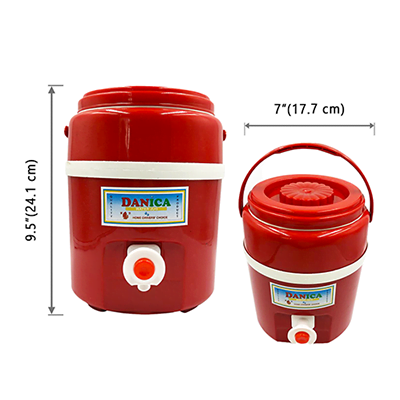
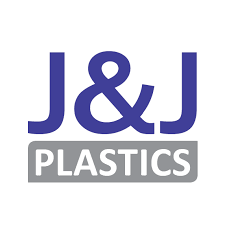 J & J Plastics Ltd
J & J Plastics Ltd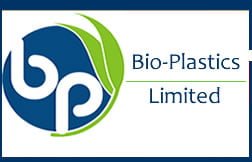 Bio Plastics Ltd:
Bio Plastics Ltd:


